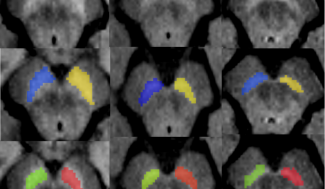Practising a sport is not just about maintaining your body. Regular physical activity profoundly affects the brain, our emotions and our mental capacities. Through better oxygenation and the release of essential neurotransmitters, sport improves mood, concentration, memory and even creativity. But not all disciplines stimulate the brain in the same way. Some promote coordination, others concentration or stress management.
Researchers at Paris Brain Institute are paying close attention to these mechanisms that make sport a true partner in brain health at all ages.
Sport: boosting brain oxygenation
When we take part in sport, our heart rate increases. This rise in blood flow improves the oxygenation of the blood, and therefore of the brain. This seemingly simple process is, in fact, a powerful driver of healthy brain function.
Better oxygenation promotes the release of neurotransmitters such as dopamine, serotonin, and endorphins. These naturally produced brain chemicals are responsible for the sense of pleasure, motivation and well-being felt after exercise. They explain the familiar “runner’s high” that so many people describe following a workout.
But their impact goes much further. These neurotransmitters also regulate concentration, attention and stress levels. In short, being active soothes the mind while sharpening cognitive performance.
Training the body and the mind
Sport is a genuine lesson in adaptation. Through physical effort, the brain learns to manage constant changes in the environment: an accelerating heartbeat, the coordination of movements, and the control of emotions.
This process involves a delicate interaction between three key dimensions:
- Motor control, to regulate movements and posture;
- Affective balance, to manage the emotions associated with effort, performance or competition;
- Cognitive control, to anticipate, decide and adjust.
Coordination between movement, emotion and thought relies on interconnected neural networks. By engaging them regularly, sport strengthens their efficiency — in other words, it helps to train the brain just as we train our muscles.
How sport enhances cognitive functions
The cognitive benefits of sport are now well established. Regular physical activity improves memory, concentration, information-processing speed and decision-making ability.
People who engage in sport tend to be more alert and focused, with better attention control — valuable skills for both work and everyday life. Sport also encourages creativity, thanks to the simultaneous activation of several brain regions involved in planning, movement and imagination.
These positive effects can be seen at all ages, though they vary depending on the stage of life:
- In children and young adults, sport boosts neuroplasticity — the brain’s ability to create or strengthen neural connections. This enhances learning and cognitive development.
- In older adults, regular physical activity helps to slow down brain ageing, maintaining blood flow and preserving mental functions.
In short, moving your body also means taking care of your brain for the long term.
Not all sports stimulate the brain in the same way
While all forms of exercise offer benefits, each type of sport engages the brain differently.
Endurance sports such as running, cycling or swimming improve cerebral blood circulation, providing the brain with a sustained oxygen supply. These activities are particularly effective for enhancing memory and attention.
Balance and coordination sports such as dance, gymnastics or martial arts engage different brain areas — especially those responsible for proprioception (the perception of body position in space) and movement synchronisation. They strengthen the connections between the brain’s hemispheres and develop coordination between different parts of the body.
Each sport, with its specific physical and mental demands, activates certain neural networks more than others. This is why varying your activities helps to enrich overall brain function.
Sport and the brain: the importance of preventing injury
Although sport offers clear benefits, some disciplines also present risks. Contact sports such as rugby, boxing and football expose participants to repeated head impacts. Even when mild, these repeated shocks can have long-term effects on brain function.
Researchers emphasise the need for effective prevention, early detection of symptoms and appropriate medical supervision. The goal is not to discourage participation, but to ensure that everyone can practise sport safely while protecting their brain health.
Keeping the brain healthy through movement
Sport acts as a natural medicine for the brain. It improves oxygenation, regulates emotions, enhances learning and promotes the creation of new neural connections.
When practised regularly, at any age, it becomes a key factor in mental and cognitive health. The challenge now is to better understand how each type of physical activity influences the brain in order to adapt prevention, rehabilitation and wellness programmes.
At Paris Brain Institute, researchers continue to explore these intricate links between movement and cognition, unlocking the full potential of sport to serve brain health and well-being.

The team aims to investigate various aspects of motor and cognitive control, particularly inter and intra-subject variability in developmental and acquired disorders and in genetically related animal models.
Read more






